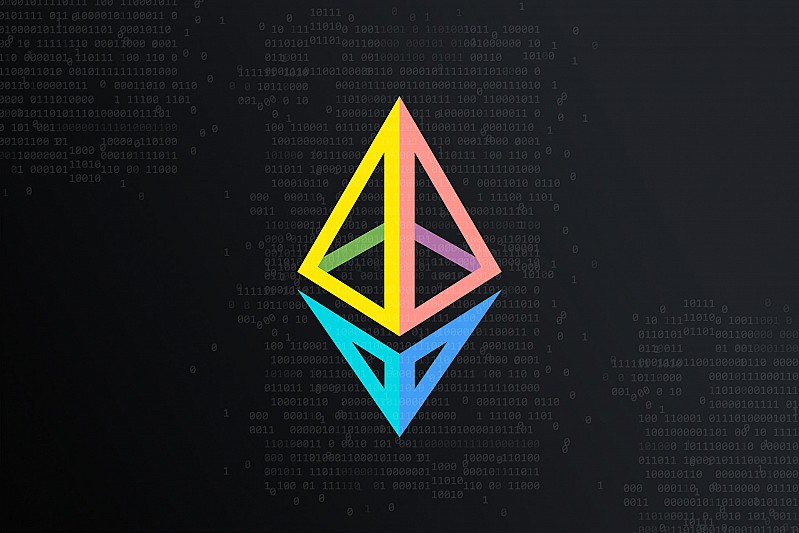Could This New Ethereum Upgrade Transform Network Performance?
07.10.2024 19:00 2 min. read Alexander Stefanov
As Ethereum continues to evolve, developers are consistently exploring innovative ways to enhance its capabilities.
Ethereum developers have introduced a new proposal that could accelerate block processing and enhance data handling on the network.
Known as EIP-7781, this initiative, unveiled by Ben Adams on October 5, looks to reduce block intervals from 12 seconds to 8, which would result in a 50% increase in network efficiency. It also promises to improve data management for rollups, ultimately cutting fees on Ethereum’s layer-2 networks.
Developer Cygaar praised the proposal as a major advancement for Ethereum’s core infrastructure, particularly since much of the focus has shifted toward scaling solutions like layer-2s. By redistributing bandwidth demand, EIP-7781 would also help manage network load without raising block or blob counts.
Justin Drake, an Ethereum researcher, voiced his support for the plan, highlighting that faster block times could make platforms like Uniswap more efficient, reducing losses from arbitrage and saving users money. Drake also pointed out that users would experience quicker transaction confirmations, improving the overall Ethereum experience.
However, the proposal has sparked discussions about the possible strain it could place on individual stakers. A shorter time between blocks may require more robust hardware and higher bandwidth, creating potential challenges for smaller validators.
Adam Cochran, a partner at Cinnehaim Ventures, noted that while the proposal seems sound, careful testing is necessary to ensure it doesn’t negatively impact solo stakers. This comes after a separate discussion by Vitalik Buterin on reducing the minimum Ether required for validators, which aims to make Ethereum more decentralized.
-
1
Canton Network Developer Secures $135M to Expand Institutional Blockchain Use
25.06.2025 12:00 1 min. read -
2
Coinbase Brings Cardano and Litecoin to DeFi via New Wrapped Tokens on Base
26.06.2025 18:00 1 min. read -
3
XRP Ledger Sees Sharp Drop in Activity as Key Network Metrics Tumble
26.06.2025 19:00 1 min. read -
4
Top 10 DeFi Projects by Development This Month
28.06.2025 20:00 1 min. read -
5
XRP Ledger Deploys EVM-Compatible Sidechain to Expand Multichain Utility
30.06.2025 21:00 2 min. read
Top 10 blockchains by transaction volume in June 2025
New data highlights a dramatic lead for Solana in blockchain activity for June 2025. According to the figures, Solana processed a staggering 2.98 billion transactions, far outpacing all other chains in the ecosystem.
Top 10 AI and Big Data Crypto Projects by Development Activity
According to new insights from market intelligence platform Santiment, development activity in the crypto sector’s AI and Big Data segment remains strong, with several major projects showing notable GitHub activity over the past 30 days.
XRP Ledger Deploys EVM-Compatible Sidechain to Expand Multichain Utility
The XRP Ledger (XRPL) has officially launched its Ethereum Virtual Machine (EVM) sidechain on mainnet — marking a major milestone in its effort to bridge XRP’s payment efficiency with Ethereum’s smart contract capabilities.
What the U.S. Blockchain Act Means for Crypto’s Future
The U.S. House of Representatives has taken a major step toward digital asset regulation by passing the Deploying American Blockchains Act of 2025.
-
1
Canton Network Developer Secures $135M to Expand Institutional Blockchain Use
25.06.2025 12:00 1 min. read -
2
Coinbase Brings Cardano and Litecoin to DeFi via New Wrapped Tokens on Base
26.06.2025 18:00 1 min. read -
3
XRP Ledger Sees Sharp Drop in Activity as Key Network Metrics Tumble
26.06.2025 19:00 1 min. read -
4
Top 10 DeFi Projects by Development This Month
28.06.2025 20:00 1 min. read -
5
XRP Ledger Deploys EVM-Compatible Sidechain to Expand Multichain Utility
30.06.2025 21:00 2 min. read


